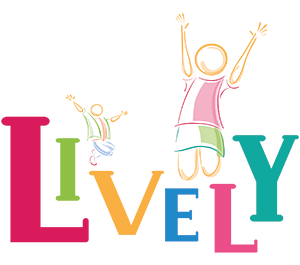About LIVELY

The Language Intervention in the Early Years (LIVELY) research project was conducted by Newcastle University to evaluate the effectiveness of language interventions for pre-school children in nursery contexts with significant language difficulties. We worked with Local Authority and school partners to help us identify participants.
Around 10% of children in the UK have language difficulties, rising to 40% in the most socially disadvantaged areas. Research has consistently shown that children who do not recover from such difficulties are at risk of adverse longer-term outcomes such as unemployment and poorer economic and psychological wellbeing.
One approach to address this issue is to target ‘at-risk’ children with interventions designed to promote language skills in the early years. However, few interventions have been formally evaluated.
The research project, funded by the Heather van der Lely Foundation, evaluated the effectiveness of language interventions for children with language difficulties by randomly allocating schools to one of two groups:
- Building Early Sentences Therapy (BEST) was developed by Newcastle University in partnership with speech and language therapists and has promising early signs of effectiveness.
- The Derbyshire Language Scheme (DLS) has been used widely for many years. The study used an adapted version of this scheme (A-DLS).
It was not possible to say which of these approaches is the most effective and this was the main question of this research study.
Schools were randomly allocated to one of the two groups: BEST or A-DLS. Teachers were asked to identify children who were failing to meet expected language targets and who might benefit from a language intervention. Parents were invited to participate in the project and asked to sign a consent form. After baseline assessments were conducted to confirm children’s eligibility for the project, researchers delivered the interventions to the BEST and A-DLS groups. Researchers provided two intervention sessions a week for eight weeks. Each session lasted no more than 30 minutes. After the 8 weeks when interventions were delivered to children the researchers assessed all children again. A third assessment was conducted about 6-8 weeks later. This process was repeated over two waves.
There is more information on the LIVELY Flyer (opens as a pdf).
The LIVELY study was preregistered on the ISRCTN registry.
Ethics
The research project had ethical approval from Newcastle University.
COVID
The project began in January 2020, was paused as a result of COVID and restarted in March 2021. Data collection was completed in May 2022.
Due to the enormous professionalism, flexibility and resilience of the research team we were able continue to deliver high quality and safe interventions to children during the pandemic.
Working with early years settings
The team worked with 102 children to deliver the BEST and DLS interventions in 20 schools, across two waves. For more information see the update flyer.
We would like to say a huge thank you to all of the participating schools for their support. The LIVELY team really enjoyed working with you all.
Findings will be added to a Findings page as soon as possible.
